
“This is half the price,” she says, inspecting the cracked spine and frayed edges of a hefty chemistry textbook. “It will do just fine.”
The rising cost of new textbooks and other school materials is driving more and more parents like Sufia to stores that sell second-hand books.
“I have three kids. Buying them new books would cost Rs10,000 to Rs12,000,” says Sufia. “And that’s just before school opens. When they reopen we will learn what other materials we have to buy for the children.”
Stores selling new books are suffering. Adnan Naeem, managing partner of Iqbal Book Corner in Main Market, says sales are down 50 per cent. “Mostly when we manage tosell textbooks it’s because the customer can’t find them in the old book shops,” he says.
Parents say there has been a 25 to 30 per cent rise in the cost of textbooks listed in the syllabus, prompting many to turn to used book stores where they can save up to 70 per cent of the cost of new books, as well as sell back texts they no longer need.
The average cost of the books on the syllabus taught at English medium schools is about Rs2,500-Rs3,000 for elementary classes, Rs4,000-Rs6,000 for middle school and up to Rs8,000 for O- and A-Level classes.
Typically, the store will buy a textbook for a quarter of its original price, provided it is the latest edition and in reasonably good condition.
Housewife Shaista says she has been trading in her 8-year-old’s old course books for new ones for the last two years. “He complained to me the other day: ‘Mom why are there always other people’s names already written in my books?’”
Second-hand text books for O- and A-Level courses have proved particularly popular. “I’d say about 80 per cent of my class fellows have used books,” says Asad Saifullah, an A-Level student at the Johar Town branch of the Lahore Grammar School. “We make fun of the kids who have new books,” he adds, grinning.
Asad left the Jumbo Old Book Store because they didn’t have an old copy of the book he is looking for, only pirated ones. “Pirated versions have substandard paper quality and very poor binding. I will search the shops for an older version of the original book first. If I don’t find it, then I will go for the pirated version,” he says.
Apparently the education department seems inefficient regarding keeping a check on book piracy. However, Pakistan Intellectual Property Rights Solution (PIPS), a private organisation keeps a check on book piracy and carries out the functions of a regulatory body. PIPS, together with copyright publishers, takes immediate action against such counterfeits.
Naeem, the manager of Iqbal Book Corner, says many stores advertise pirated versions of books as used books to avoid scrutiny. “They are seldom caught by the regulatory authorities as they write fake names on the books or bind them so they look like old books,” he says.
Mohsin Ali, a salesman at Jumbo Old Book Store in Main Market, says stores usually know when they are about to be raided.
“When a new book is published, the regulatory authorities send us notices warning us not to sell pirated versions. When we hear they are about to raid us, we take the books off the shelves,” he says.
He says the only way pirated books would disappear is if international publishing houses opened presses to produce low-price texts for the domestic market, as in India. “At the moment this business is unimaginable without pirated books,” he adds.
Published in The Express Tribune, August 22nd, 2010.
1737542501-0/BeFunky-collage-(19)1737542501-0-405x300.webp)
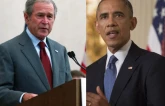

1737537702-0/fizza-(79)1737537702-0-165x106.webp)

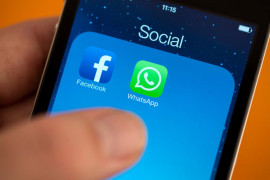
1732012115-0/Untitled-design-(14)1732012115-0-270x192.webp)
1620730415-0/how-to-quit-online-impulse-shopping(770x513)1620730415-0-270x192.webp)

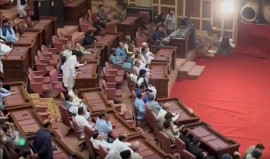

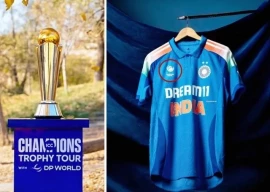
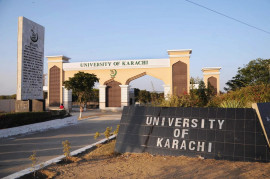
1737452260-0/Gaddafi-stadium-(2)1737452260-0-270x192.webp)

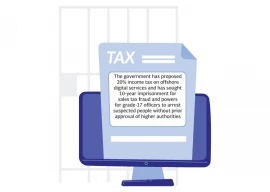
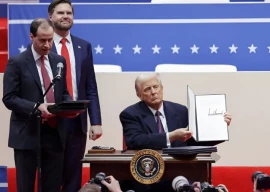
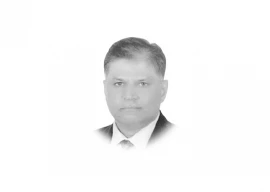





COMMENTS (1)
Comments are moderated and generally will be posted if they are on-topic and not abusive.
For more information, please see our Comments FAQ